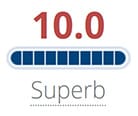Jaundice And Kernicterus FAQ: How Jaundice And Kernicterus Can Cause Harm To Babies
Jaundice and kernicterus are conditions that occur in newborn babies. Below are questions and answers that parents often ask regarding these conditions. The sources for this information are the CDC and the Mayo Clinic.
What is jaundice?
Infant jaundice occurs when there is an excess of bilirubin in the blood. Bilirubin is a yellow pigment of red blood cells. Infant jaundice typically occurs 2 to 4 days after the birth.
What are jaundice symptoms?
The primary symptom of jaundice is yellowing of the skin and eyes.
How should doctors respond when a baby has jaundice?
Most jaundice cases are minor and resolve themselves in a week or two.
In more severe cases, there are several treatment options. These include enhanced/supplemented nutrition; light therapy; and intravenous transfusion of a blood protein.
If your baby has jaundice, your baby’s medical team should measure the baby’s blood for bilirubin. This test will reveal how severe the jaundice is.
What can happen with severe jaundice?
In cases where severe jaundice is not managed, it can lead to a very serious condition called kernicterus.
What is kernicterus?
Kernicterus is permanent brain damage that is caused by high levels of bilirubin in a baby. Kernicterus can cause cerebral palsy or hearing loss. Kernicterus also can lead to problems with vision, teeth and intellectual development.
How and when will I know if my child has or had kernicterus?
In some cases, the damage from kernicterus is not evident for a year or more. The damage can become apparent when the child begins missing benchmarks for normal development.
How can kernicterus be prevented?
Early detection and management of jaundice can prevent kernicterus.
What should I do now?
If you believe kernicterus has damaged your child, contact the law firm of Pfaff, Gill & Ports, Ltd. Our attorneys can gather the facts of your child’s condition and medical treatment. We can determine whether there was negligence in your child’s medical care and whether financial compensation is deserved.













